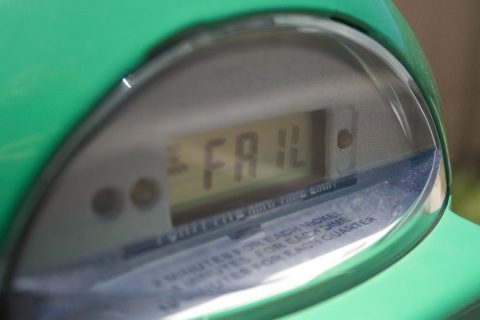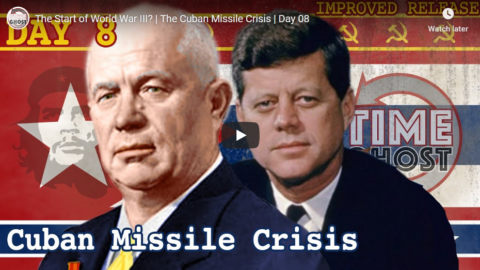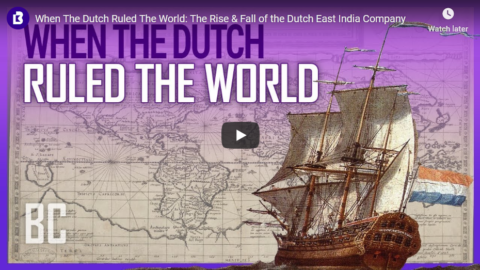World War Two
Published 14 Jul 2020When the German armed forces invade the USSR, they come with an order to exterminate from Hitler. Now the defending Soviet armed forces receive similar orders from Stalin. The bloodshed that follows defies human imagination.
Join us on Patreon: https://www.patreon.com/TimeGhostHistory
Or join The TimeGhost Army directly at: https://timeghost.tvFollow WW2 day by day on Instagram @World_war_two_realtime https://www.instagram.com/world_war_two_realtime
Between 2 Wars: https://www.youtube.com/playlist?list…
Source list: http://bit.ly/WW2sourcesHosted by: Spartacus Olsson
Written by: Spartacus Olsson and Joram Appel
Director: Astrid Deinhard
Producers: Astrid Deinhard and Spartacus Olsson
Executive Producers: Astrid Deinhard, Indy Neidell, Spartacus Olsson, Bodo Rittenauer
Creative Producer: Joram Appel
Post-Production Director: Wieke Kapteijns
Research by: Joram Appel and Spartacus Olsson
Edited by: Mikołaj Cackowski
Sound design: Marek Kamiński
Map animations: Eastory (https://www.youtube.com/c/eastory)Colorizations by:
Julius Jääskeläinen – https://www.facebook.com/JJcolorization/
Jaris Almazani (Artistic Man) – https://instagram.com/artistic.man?ig…
Klimbim – https://www.flickr.com/photos/2215569…Sources:
Bundesarchiv
Yad Vashem 55AO6, 145CO2, 142GO5, 1019/2, 5648/40, 143EO1, 5648/39, 73BO2, 74FO7, 2725/17, 1564/2, 4360/49, 90DO9, 90DO8, 1278/19, 112GO7, 97GO2, 1597/11, 145CO1, 80DO5, 145AO, 5138/95
USHMM
Vilna Gaon State Jewish MuseumSoundtracks from the Epidemic Sound:
Skrya – “First Responders”
Philip Ayers – “Trapped in a Maze”
Farrell Wooten – “Mystery Minutes”
Cobby Costa – “From the Past”
Cobby Costa – “Flight Path”
Gunnar Johnsen – “Not Safe Yet”
Farrell Wooten – “Blunt Object”
Fluow – “Endlessness”
Jon Bjork – “Icicles”
Jon Bjork – “For the Many”Archive by Screenocean/Reuters https://www.screenocean.com.
A TimeGhost chronological documentary produced by OnLion Entertainment GmbH.
From the comments:
World War Two
8 hours ago (edited)
However hard it is to watch this horror, it’s important that we document it, and learn from it. Each and everyone of us can, and we must for the sake of ourselves and our fellow human beings do so. The steps that led the people involved in these atrocities to this point were small, sometimes innocent, or at least uninformed decisions that took many years to reach this level of inhumanity. It starts with denying facts, imagining conspiracies as the root of your own problems, and demonizing your imagined enemies. In this void you are already on a slippery slope that may lead into the abyss. On that note, the events depicted here are based on solid research, and verified sources that are irrefutable. Wherever there is uncertainty, we have mentioned it. The purpose of this documentation is neither to scapegoat any one side, nor exonerate anyone from blame. These are the facts. This is what happened. Think about that, because the perpetrators here were like us, they didn’t come out of their mother’s womb with the intent to torture and murder anyone. And the victims were also like all of us, ordinary people just trying to get on with their lives according to their best ability. They had dreams and goals in life, some of them political perhaps, but mostly they just got on with their everyday life, banal and difficult as that might be, until they ended up in the hands of someone who had learnt to hate them without even knowing them. Remember that – this could have been anyone of us, on both sides of the events. To have that humility is the beginning of a journey to do good.Spartacus
PS. and if you wonder how we put up with making this kind of content; it’s difficult. I cried bitterly after recording this, and tears still well up when I think about it. While we write it’s easier to turn off, switch on the coping mechanisms, pretend that its just absurd facts and numbers. But when you act out the words… that what defies imagination is suddenly horribly real.









